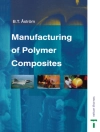Opens the door to the sustainable production of
pharmaceuticals and fine chemicals
Driven by both public demand and government regulations,
pharmaceutical and fine chemical manufacturers are increasingly
seeking to replace stoichiometric reagents used in synthetic
transformations with catalytic routes in order to develop greener,
safer, and more cost-effective chemical processes. This book
supports the discovery, development, and implementation of new
catalytic methodologies on a process scale, opening the door to the
sustainable production of pharmaceuticals and fine chemicals.
Pairing contributions from leading academic and industrial
researchers, Sustainable Catalysis focuses on key areas that
are particularly important for the fine chemical and pharmaceutical
industries, including chemo-, bio-, and organo-catalytic approaches
to C-H, C-N, and C-C bond-forming reactions.
Chapters include academic overviews of current innovations and
industrial case studies at the process scale, providing new
insights into green catalytic methodologies from proof-of-concept
to their applications in the synthesis of target organic
molecules.
Sustainable Catalysis provides the foundation needed to
develop sustainable green synthetic procedures, with coverage of
such emerging topics as:
* Catalytic reduction of amides avoiding Li Al H4 or B2H6
* Synthesis of chiral amines using transaminases
* Industrial applications of boric acid and boronic acid
catalyzed direct amidation reactions
* C-H activation of heteroaromatics
* Organocatalysis for asymmetric synthesis
Offering a balanced perspective on current limitations,
challenges, and solutions, Sustainable Catalysis is
recommended for synthetic organic chemists seeking to develop new
methodologies and for industrial chemists dedicated to large-scale
process development.
Innehållsförteckning
Foreword vii
Preface ix
Contributors xi
Abbreviations xiii
1 Catalytic Reduction of Amides Avoiding Li Al H4 or B2H6 1
Deborah L. Dodds and David J. Cole-Hamilton
2 Hydrogenation of Esters 37
Lionel A. Saudan
3 Synthesis of Chiral Amines Using Transaminases 63
Nicholas J. Turner and Matthew D. Truppo
4 Development of a Sitagliptin Transaminase 75
Jacob M. Janey
5 Direct Amide Formation Avoiding Poor Atom Economy Reagents
89
Benjamin M. Monks and Andrew Whiting
6 Industrial Applications of Boric Acid and Boronic
Acid-Catalyzed Direct Amidation Reactions 111
Joanne E. Anderson, Jannine Cobb, Roman Davis, Peter J. Dunn,
Russ N. Fitzgerald, and Alan J. Pettman
7 OH Activation for Nucleophilic Substitution 121
Jonathan M.J. Williams
8 Application of a Redox-Neutral Alcohol Amination in the
Kilogram-Scale Synthesis of a Gly T1 Inhibitor 139
Martin A. Berliner
9 Olefin Metathesis: From Academic Concepts to Commercial
Catalysts 163
Justyna Czaban, Christian Torborg, and Karol Grela
10 Challenge and Opportunity in Scaling-up Metathesis Reaction:
Synthesis of Ciluprevir (BILN 2061) 215
Nathan Yee, Xudong Wei, and Chris Senanayake
11 C-H Activation of Heteroaromatics 233
Koji Hirano and Masahiro Miura
12 The Discovery of a New Pd/Cu Catalytic System for C-H
Arylation and Its Applications in a Pharmaceutical Process
269
Jinkun Huang, Xiang Wang, and Johann Chan
13 Diarylprolinol Silyl Ethers: Development and Application as
Organocatalysts 287
Hiroaki Gotoh and Yujiro Hayashi
14 Organocatalysis for Asymmetric Synthesis: From Lab to Factory
317
Feng Xu
15 Catalytic Variants of Phosphine Oxide-Mediated Organic
Transformations 339
Stephen P. Marsden
16 Formation of C-C Bonds Via Catalytic Hydrogenation and
Transfer Hydrogenation 363
Joseph Moran and Michael J. Krische
Index 409
Om författaren
PETER J. DUNN, Ph D, is Global Green Chemistry Lead for
Pfizer. Dr. Dunn has played a key role in the development of
commercial processes to make several drugs, including Viagra(TM),
Emselex(TM), Revatio(TM), and Sampatrilat.
K. K. (MIMI) HII, Ph D, holds a Readership in Catalysis in
the Department of Chemistry at Imperial College London. Her
research focuses on the development of sustainable catalytic
processes for organic synthesis.
MICHAEL J. KRISCHE, Ph D, is Director of the Center for
Green Chemistry and Catalysis and Robert A. Welch Chair in Science
at The University of Texas at Austin. He is the recipient of the
Tetrahedron Young Investigator Award, Humboldt Prize, Presidential
Green Chemistry Challenge Award, and ACS Elias J. Corey Award.
MICHAEL T. WILLIAMS, Ph D, is an independent consultant.
Previously, he was an executive director at Pfizer and played a key
role in the development and commercialization of many drugs,
including Zoloft(TM), Viagra(TM), and Relpax(TM).












